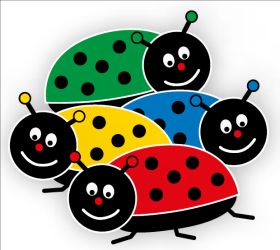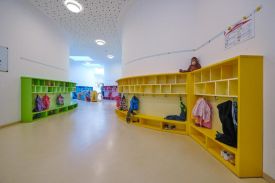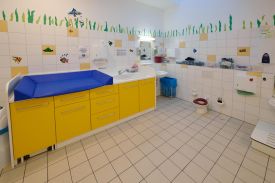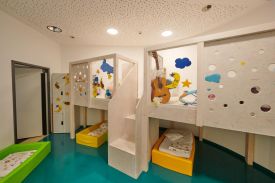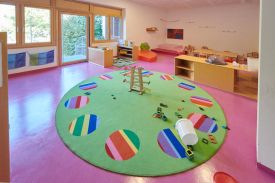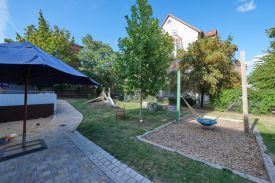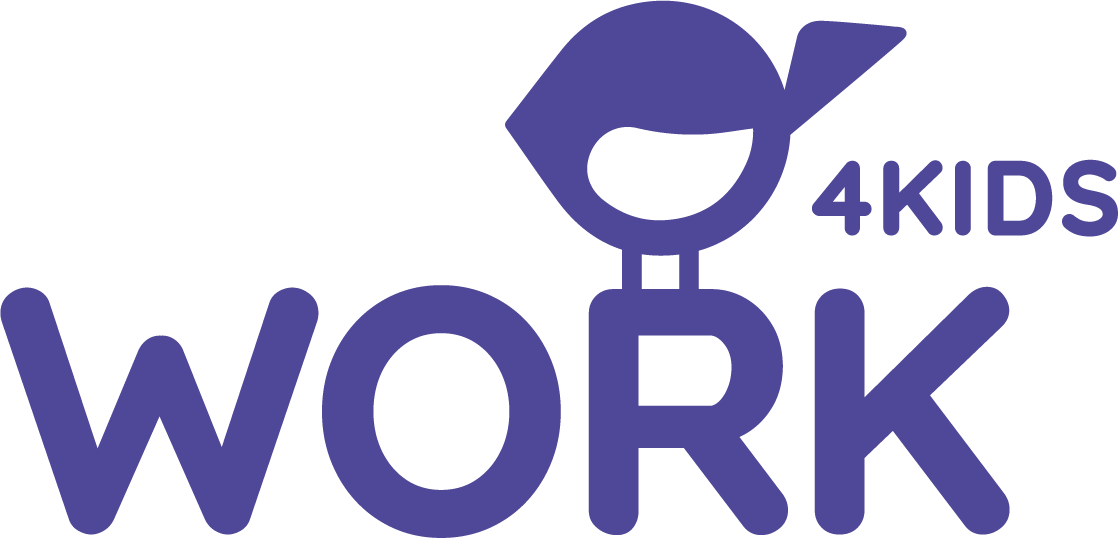Daily Schedule
A regulated daily routine gives the child stability and security and thus creates a trusting environment. The daily routine includes transitions that are adapted to the individual needs of the children.
Daily routine in the crèche groups:
Core time from 08:30 to 14:00
07:00 to 08:30 Arrival of the children, playing together; free play
08:30 am to 09:30 am Morning circle, followed by breakfast together
09:30 to 11:00 Free play time; nappy changing; time for educational activities; walks; gymnastics; time in the garden
11:00 a.m. to 11:45 a.m. Lunch
12:00 to 14:00 Lunchtime nap / rest time
2:15 p.m. to 2:30 p.m. Pick-up time
2:30 p.m. to 3:00 p.m. snack time
from 3 p.m. to 4:30 p.m. Free play; educational activities; time in the garden
or 16:00
We would now like to explain a few terms to you:
Our core time:
During our core time, all children should be present and thus participate in our life together at the facility. We want to work intensively with the children during this time. Dropping off and picking up the children during core time is only possible in exceptional cases and by prior arrangement.
Our morning circle:
Every day we sit down with the children for our morning circle. We greet each other with a song, count the children, play circle games and sing together. In the morning circle, we also discuss the weather and the day with the children. Each group has its own individual rituals. In addition, upcoming events, daily activities and current topics such as the theme for the year are addressed and discussed with the children. The children experience the morning circle in a very participatory way and are allowed to have a say in many things. Various picture cards, e.g. from the songs, are used to support them.
Organization of mealtimes:
Breakfast, snack and hot lunch are an integral part of our daily educational routine. In order to give the children a sense of togetherness, we have decided to have breakfast and snack together. Lunch is also eaten together. We make sure that the children have a varied diet at breakfast, snack and lunch. The children are given water or unsweetened tea to drink.
Free play:
Free play is very important to us because it helps the child to deal with what is currently occupying, stressing or interesting them. The group room design is specially geared to the needs of the children and the range of activities on offer is much greater than at home.
Free play offers children the opportunity to find themselves and interact with others, to develop self-confidence and to practise ways of making contact and dealing with conflicts. We support the children in this with a variety of orientation aids. Children gain necessary social experience through play.
Free play also offers teachers the opportunity to encourage and observe individual children (unnoticed).

